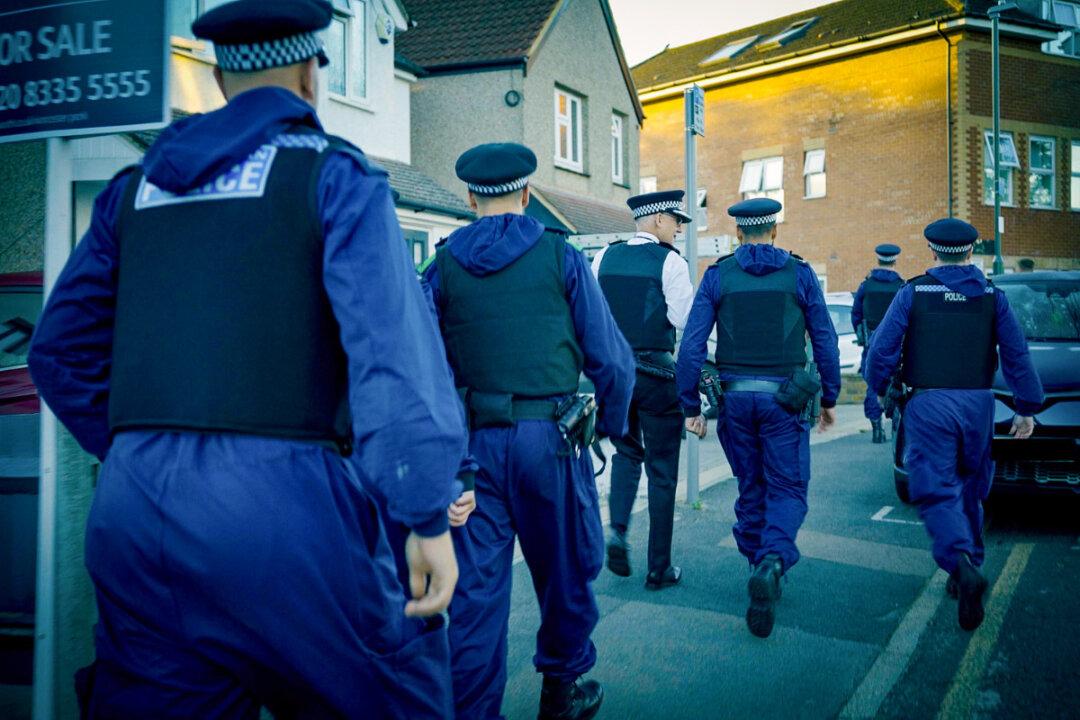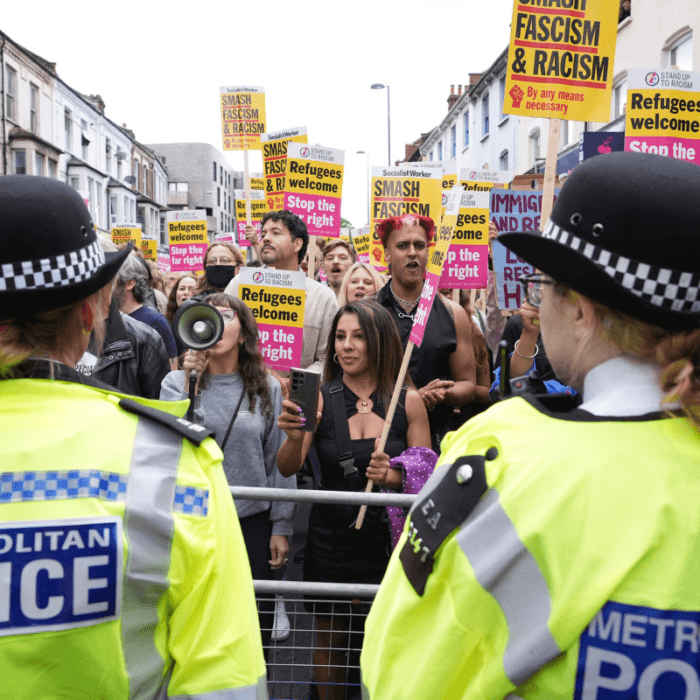The police inspectorate found the force was failing in seven out of eight crime-fighting areas, including a failure to manage the risk posed by registered sex offenders and online child abusers “effectively.”
The force also suffers from “inconsistent decision-making” and inter-personal arguments, with inexperienced officers trying to manage investigations into more than 25 crimes at once, according to the report.
His Majesty’s Inspectorate of Constabulary and Fire & Rescue Services (HMICFRS) shared the findings from its 2023-2025 inspection programme, which assesses the effectiveness, efficiency and legitimacy of police forces in England and Wales.
The report found that neighbourhood officers told inspectors they couldn’t always spend enough time carrying out patrols, working with the public, or doing preventative and problem-solving work because they “were often diverted to other non-neighbourhood duties,”—a phenomenon known as “abstraction.”
The Met reported to the inspectorate that the amount of time neighbourhood officers are abstracted has reduced significantly in the last year, but remains high at around 30 percent of the force’s worktime.
The last year has seen hundreds of thousands of people attend a series of pro-Palestinian marches in the capital, as well as continued disruption caused by Just Stop Oil activists.
‘Adequate’ in 1 Area out of 8
The report found the force was adequate in just one of the eight areas it graded, required improvement in five areas and was inadequate in two areas—investigating crime, and managing offenders and suspects.In the “managing offenders and suspects” section, inspectors identified a lack of training in both the process of managing suspects and offenders, and in use of the Violent and Sex Offender Register.
Sex offenders were often being warned in advance that they were to be paid a home visit, giving them the opportunity to dispose of incriminating digital evidence, the report found, while one sex offender judged to pose a serious risk of reoffending had not been visited since 2017.
A performance report provided to inspectors highlighted the Met had a “no further action” rate of 60 percent for “indecent imagery of children” investigations.
Teams were not always adequately joined-up, with staff outside the online child sexual abuse and exploitation team not having access to a digital triage, meaning officers “must guess which devices could have indecent images on them.”
Inexperienced Officers Assigned to ‘Complex’ Crimes
Examples were found during the inspection of complex crimes being allocated to officers with only “basic investigative training,“ while supervisors in investigation teams had little or no training in how to manage crime workloads.”The quality of investigations for neighbourhood crimes was “generally poor” and lines of enquiry were not always identified or pursued.
It also found the Met does not consistently help victims to access their rights, as laid out in the Victims’ Code, and it doesn’t always recognise when a victim is entitled to an enhanced service.
‘Unique Challenges’
His Majesty’s Inspector of Constabulary Lee Freeman said: “The unique challenges facing the Metropolitan Police are not underestimated. Policing the capital city places additional strain on the force and its leadership, as the force tirelessly manages protests, state visits and royal occasions, and national and international sporting events.“While I commend the force for the progress it has made in answering the public’s calls quickly, I have serious concerns about how the force is currently investigating crime and how it manages offenders and suspects.
“I am aware that before our inspection, the force had already recognised the need to achieve better outcomes for victims. However, these plans have not yet led to consistent improvements across the whole force, and more work needs to be done to make sure that this happens.”
The Met, headed by Commissioner Mark Rowley, has been in special measures since June 2022, and appears likely to remain so in light of the latest inspection.
“We are now reflecting carefully on the findings, the core of which reflect our A New Met for London plans and the briefing we gave to the HMIC. We will continue to work closely with the inspectorate, the Mayor’s office for policing and crime, and other partners to improve delivery for Londoners.”
The Met is facing two special further inspections from HMICFRS, one into child protection and another into the failings identified in the new report.







